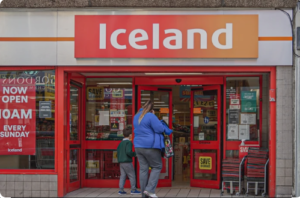As concerns over environmental sustainability continue to grow, consumers increasingly seek retailers that prioritize green practices. Iceland.co.uk, a prominent UK supermarket chain, is setting a stellar example in the grocery sector by embedding sustainability into its operations. The company’s commitment extends beyond mere corporate responsibility, influencing every aspect of its business—from sourcing and packaging to logistics and waste management.
Pioneering Plastic Reduction
Iceland.co.uk has emerged as a leader in the fight against plastic pollution, a critical issue given the grocery industry’s heavy reliance on plastic packaging. In 2018, Iceland made a bold commitment to eliminate all plastic packaging from its own-label products by 2023. This initiative aims to reduce the environmental impact of waste and promote recycling practices. Instead of plastic, Iceland has been exploring and implementing the use of alternative materials like paper, pulp trays, and biodegradable wraps, which have significantly lesser environmental footprints.

Championing the Cause of Frozen Food
Iceland’s core business—frozen food—is inherently more sustainable than many realize. The process of freezing food extends its shelf life naturally, reducing the need for preservatives while maintaining nutritional value. More importantly, frozen food minimizes food waste, a major issue for both retailers and households. By allowing consumers to use only what they need and store the rest, Iceland helps reduce the amount of food that ends up in landfills. This approach not only supports environmental sustainability but also offers economic benefits to consumers.
Supporting Sustainable Sourcing
Iceland.co.uk is committed to responsible sourcing. This commitment is reflected in its seafood sourcing policy, which ensures that all its fish and seafood come from sustainable sources. The company actively supports fishing practices that do not deplete fish stocks and that maintain the balance of marine environments. Additionally, Iceland has been a strong advocate for palm oil-free products, recognizing the destructive impact of palm oil cultivation on rainforests and biodiversity.

Renewable Energy and Carbon Footprint Reduction
Understanding the significant impact that energy consumption has on the environment, Iceland has invested in renewable energy sources across its operations. The supermarket has also implemented energy-efficient lighting and refrigeration systems in its stores to reduce its carbon footprint. These steps are part of a broader strategy to decrease greenhouse gas emissions across their supply chain, aligning with global efforts to combat climate change.
Engaging with Communities and Customers
Iceland.co.uk believes that education and community engagement are essential for fostering environmental stewardship. The company regularly conducts campaigns to raise awareness about sustainable practices and the environmental benefits of frozen food. Additionally, Iceland encourages its customers to participate in recycling programs and provides clear information about how to dispose of packaging materials responsibly.

Conclusion
Iceland.co.uk’s dedication to sustainability demonstrates how grocery retailers can play a crucial role in promoting environmental health. Through its innovative practices and commitment to eco-friendly policies, Iceland is not just a leader in the frozen food market but also a pioneer in the supermarket industry’s shift towards sustainability. As Iceland continues to champion these green initiatives, it sets a commendable example for others in the industry, proving that business success and environmental responsibility can go hand in hand.

